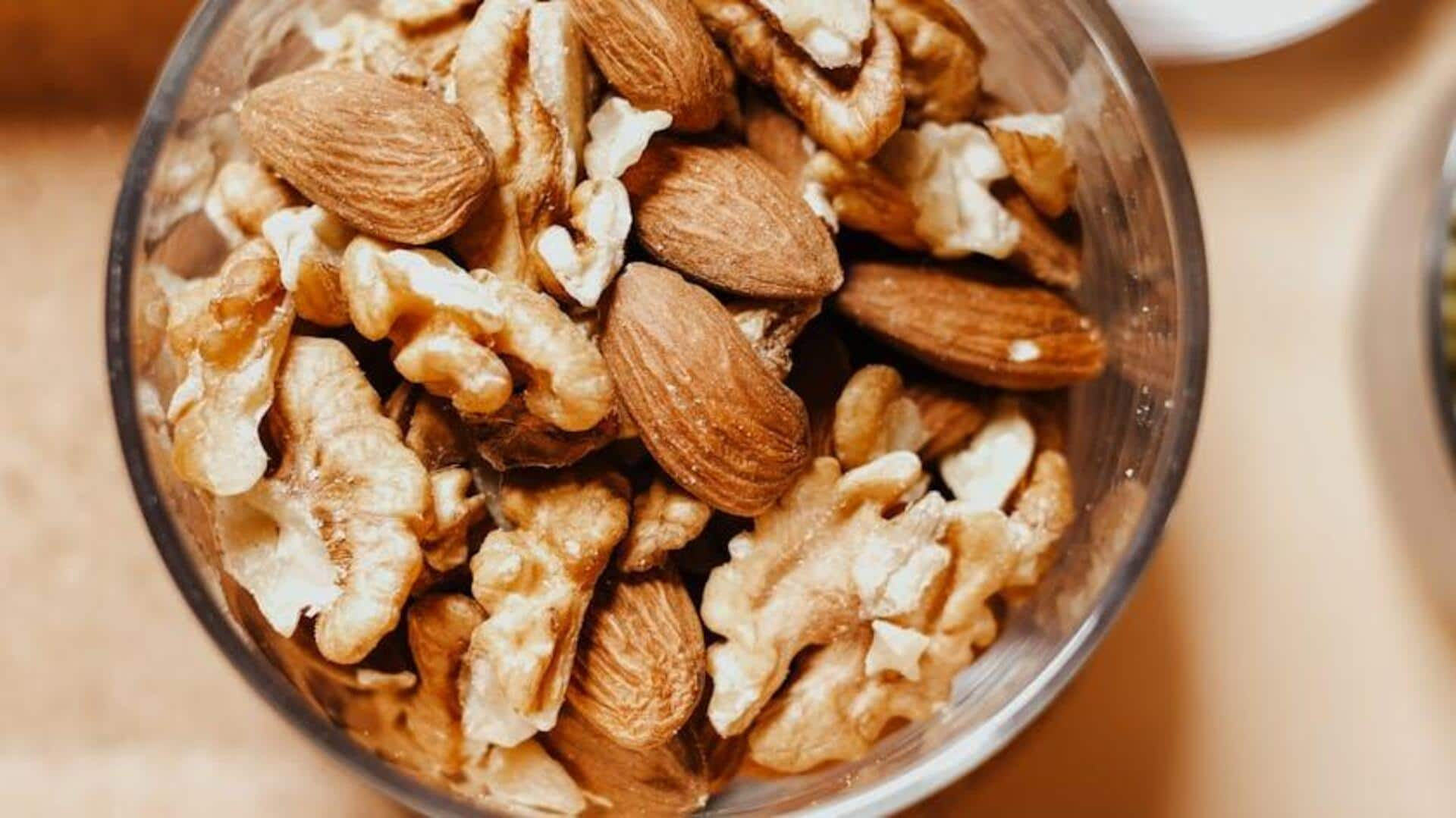
Almonds v/s walnuts: Which is healthier?
What's the story
Almonds and walnuts are two of the most popular nuts, known for their health benefits. Both the nuts are packed with nutrients that can help improve your health. While almonds are famous for their vitamin E content, walnuts are known for their omega-3 fatty acids. Knowing the nutritional profiles of these nuts can help you choose the right one for your diet.
#1
Vitamin E powerhouse: Almonds
Almonds are an amazing source of vitamin E, an antioxidant that protects cells from damage. A serving of almonds can give you around 50% of the daily recommended intake of vitamin E. This nutrient is important for skin health and immune function. Eating almonds regularly can help keep the skin healthy by minimizing oxidative stress.
#2
Omega-3 fatty acids: The walnut advantage
Walnuts are one of the best plant-based sources of omega-3 fatty acids, which are essential for heart health. A serving of walnuts provides about 2.5 grams of omega-3s, which helps reduce inflammation and improve brain function. Including walnuts in your diet can help you maintain healthy cholesterol levels and support cardiovascular health.
#3
Protein content comparison
Both almonds and walnuts provide a good amount of protein, which is important for muscle repair and growth. Almonds provide around six grams of protein per ounce, whereas walnuts provide around four grams per ounce. If you want to increase your protein intake without consuming animal products, both these nuts make great additions to your diet.
Tip 1
Caloric considerations
When adding nuts to your diet, it's important to consider their caloric content. Almonds have about 160 calories per ounce, while walnuts have about 185 calories per ounce. If you're watching your calorie intake but want to enjoy the health benefits of these nuts, portion control is key. Both can be enjoyed as part of a balanced diet, but mindful consumption is important to avoid excess caloric intake.